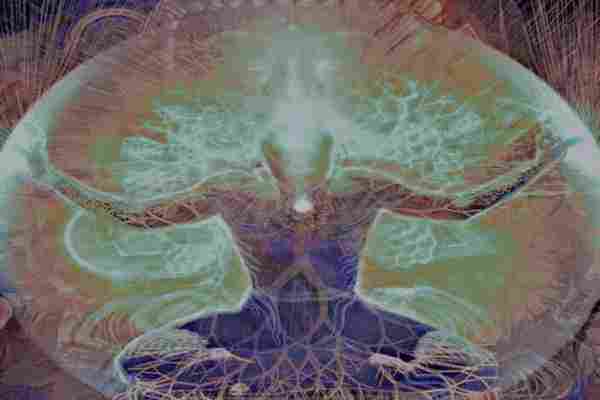Learning divine principles is beneficial to understanding the programming of our worldview. This knowledge helps us understand ourselves. It enables us to identify the magical foundation of our religious beliefs.
How much of magical thinking is a part of your worldview? Are you a freethinker or a religious conformist? Knowing where you are on this continuum of awareness will help you understand how much the culture influences you.
Magic and divine principles have a lot in common. When used with the proper perspective, they can illuminate and clarify our thinking. Let’s start by defining this subject.
Spiritual Principles for Living
The foundation of spiritual doctrines centers on beliefs about existence and the purpose of life. These doctrines are often based on a higher power or deity and are believed to be communicated to humanity by this divine being. Hence, they are often seen as divinely inspired principles.
Many people relate their moral, and ethical practices to spiritual beliefs based on some form of deism. Different religions or belief systems define divine principles in different ways, for example. In Christianity, divine principles are often precepts taken from the Bible. These principles often include the Ten Commandments and the teachings of Jesus.
Islam has the Five Pillars of Islam, the principles of justice, and the teachings in the Quran, which are held as the source of divine principles. Hinduism has concepts like Dharma and Karma as divine principles. Buddhism teaches the Four Noble Truths and the Eightfold Path as principles for spiritual guidance.
These principles promote moral codes that provide guidelines for ethical living. Spiritual principles for living are a common thread in many communities. When they are positive principles, they create a healthy community. Beliefs about the afterlife are often a central theme in these teachings. These principles link us back to the ancient myths and superstitions that inspired the creation of religion.
The Relationship Between Magic and Divine Principles
Magic is a supernatural power that uses unseen forces to influence. It is a mystical process for coaxing and invoking the universe to act in our favor. What is the line between wishing something could happen and making it happen?
The line between invoking and wishing is not clear. At what point does our intent become a supernatural force? Does this process involve hope or faith? Are these ingredients needed for magical alchemy, or are they bi-products?
The idea that words have supernatural power is an argument that convinces people to accept religious beliefs. The primary drivers for religious belief are traditions based on fear and greed, two powerful emotional triggers. Belief in the supernatural power of words lends credence to rituals like prayer.
The Foundation of Spirituality is Magic

Spirituality is the personal quest for meaning and connection with the divine or ultimate reality. It deals with the spirit or soul, which is synonymous with consciousness and awareness in today’s language. The quest for meaning in the spirit realm is a mystical and magical adventure that deals with our divine nature.
Both magic and divine principles relate to the quest to understand and harness the powers of the universe. Magic is often seen as a way to tap into those mysteries, to bend the rules of reality, and to bring about change that may seem beyond the ordinary. Divine principles provide a framework for the rules that govern magic. They help us live in harmony with the cosmos.
The Benefits of Learning Divine Principles
Learning about divine principles helps us understand the foundation of spirituality. It unlocks the meaning of spiritual doctrines in all belief systems. When we unravel them, we see how they shape our thinking. You can see whether a concept aligns with reality. Then, decide whether you want to accept it. That’s right. Knowledge gives us the power to change our minds. Here are the benefits of these principles.
1. Moral and Ethical Guidance. Spiritual principles for living give a framework for discerning right from wrong. When these principles are holistic, inclusive, and fair, this encourages us to act with integrity.
2. Spiritual Growth and Enlightenment. Applying these precepts can increase awareness. A greater bandwidth of awareness leads to intellectual and spiritual growth, which are the basis of inner peace and a sense of purpose.
3. Community and Belonging. Many spiritual communities are built around shared beliefs and learning divine principles. Common beliefs always promote a sense of camaraderie and belonging. Such a community can be a great source of support and collective strength during difficult times.
4. Psychological and Emotional Well-being. A grounding in positive divine principles can promote mental and emotional well-being. These guidelines provide stability, hope, and comfort. This can reduce anxiety, fear, and stress. This is an asset in times of uncertainty or crisis.
5. Purpose and Direction. By learning divine principles, you provide a structure for positive focus and direction. This sense of purpose can guide life choices, goals, and actions, leading to a more focused and meaningful life.
6. Moral and Social Accountability. Spiritual principles for living emphasize accountability. Accountability for performing required rituals is often included, acknowledging a specific higher power. It encourages ethical behavior and social responsibility within the guidelines of the religion. Moral structure can promote social harmony, justice, and a commitment to the common good.
In summary, learning divine principles has several tangible benefits. They provide a sense of belonging, emotional well-being, and a framework for living. The level of benefits will vary based on the environment.
The Magical Foundation of Religious Beliefs
In early human societies, natural events like storms were caused by supernatural forces. They believed magic enabled some the ability to influence these unseen forces. Magic, in this context, involved rituals, spells, or offerings intended to control or appease these forces.
As societies evolved, these magical practices became more systematized. The organization of these concepts led to the development of religion, its rituals, and the worship of deities. The belief that spirits or deities controlled the elements led to the formation of pantheons in many ancient religions.
The magical foundation of religious beliefs is concealed within its symbolic narratives. The doctrines, rituals, and doctrines convey deeper spiritual truths. Only the elite have access to the deeper meaning, which is not widely known among ordinary devotees.
The rituals of Western organized religion are a similar cloaking device. Their doctrines are not new; they are the rebranding of the mystery religions. Western religion, via the Roman army, assimilated these earlier cults. As they conquered these territories, they absorbed their religions for cash flow. So, the ancient mystery cults from Assyria, Babylon, Egypt, and Persia live on today under the Abrahamic religions.
Concealment is a way for them to deny their connection to earlier cults and claim the teachings as their own. It also preserves the essence of the teachings from being misunderstood by the common believer who is not ready to grasp their true meaning.
The symbolism and mystical elements add a sense of awe and mystery, hinting at a connection to the divine. This veil of the esoteric keeps religious beliefs mysterious and compelling, inspiring believers. It is a tool to lure future believers and retain devotees. All the while, the magical foundation of religious beliefs is kept secret.
Using magic bridges the gap between wishing and making something happen. However, Western religion does not admit this.
You will find a magical process at the core of many cultures’ rituals and ceremonies. When we combine ritual with intent, we get what many call craftwork. When people speak words of power, this is spellcasting, so prayer is a form of spellcasting. Again, this isn’t something that Western religion will admit.
Delving Into Magic and Divine Principles of Organized Religion
Gravity seems like magic. It’s an unseen force that influences our world with unseen power. Drop something, and you’ll see it work. Scientists tell us how it controls solar systems and the orbit of planes. It can even bend light and time. There is a lot of theory based on practical experience, observation, and complex data. Gravity is like many other things most people don’t fully understand.
It’s hard not to believe in magical things. If you’ve ever been in love, you know it’s magic. Love is a very magical experience, yes? If you are in love, it influences your decisions every day. Have you never felt captivated by the sheer beauty of a sunrise or sunset?
“The world is full of magic things, patiently waiting for our senses to grow sharper.” ― W. B. Yeats
Many religions are built on magical thinking, and the same is true for philosophies like the Law of Attraction. Magic is a way of transforming consciousness. Some believe magic is like gravity. Magical thinking is at the foundation of spirituality and spiritual principles for living.
“What is magic? A magic process is what you use to coax the universe to act on our behalf. So, the foundation of religion is magic.” ― Guru Tua
As you delve deeper into the magical foundation of religious beliefs, you come to a crossroads. You must ask yourself, to what extent do I believe in magic? In our research into beliefs conducted in our workshops, most people believe in some form of magic. How it is accessed is something hiding behind the veil of superstition and negative social stigma.
Spiritual Principles for Living in Abrahamic Family Tree
The three branches of the Abrahamic tree (1) are the three branches of Western Religion. Islam, Judaism, and Christianity make up Western religion, which has a combined membership of nearly 4 billion.
These systems are not original; they are one of the first major rebranding efforts. They combine over 50 sects of mystery religions of the Mediterranean region circa 500 BCE.
“Religion is like magic. It is all about tricks.” – Michel Onfray
When they designed the Abrahamic religions, the esoteric knowledge of Hermetics was available. You get a glimpse of this esoteric knowledge at the beginning of the book of John. Here, the author talks about the power of words, but this knowledge of making things happen never makes it into any tangible process. Those who built the Abrahamic religions were more concerned with creating a cash flow system. They did not include methods for self-development.
However, if you ask these regions’ followers if they believe in magical or supernatural processes, they will say no. Isn’t that curious? If you ask them, what is magic? They will tell you it’s evil, something witches practice. They don’t understand that magic is the foundation of spiritual doctrines that are at the heart of their beliefs. Let’s look at one of these key magical processes.
The Process of Magical, Mystical, Mental Appropriation

The fundamental process of asking God to give you stuff from the Abrahamic family tree is based on a magical formula. It isn’t their invention. They adopted it along with all doctrines, practices, and rituals from the ancient mystery religions.
Now, they don’t come out and say, “Here’s the formula, and here’s where we got it.” The Abrahamic traditions are built on deception. Their sole purpose is to create a system of indoctrination to control people and make them paying customers for life.
Starting the Process
Everything is accomplished in the mind with a mental process. To activate this process, we use a formula or ritual.
First, you invoke the process magically with your mind. You can do this by saying the formula out loud or silently in your mind. At this point, the formula is like any ritual, such as the Japanese Tea Ceremony or Reiki healing ceremony.
The next step is using the sacred divine name. Now, we’ve combined the magical with the mystical. The magical, mystical invocation is often based on saying the name of a higher power. Calling on the sacred name or sacred power enables a special connection with the divine. The process may include ritual or ceremonial cleansing, such as “baptism” by holy water.
Reaching out with the mind powered by faith and belief opens the mystical realm. Belief in this process enables the divine mental connection.
The fastest-growing brand of religion is of the magical ‘name it and claim it’ variety, in which the deity exists only to meet one’s immediate, self-identified needs. — Barbara Ehrenreich
Now, you’ve entered the realm of favor provided by belief in your imaginary friend. That means the foundation of spiritual doctrines in the Abrahamic family is based on ceremonial magic. It is a magical process whereby you get salvation, healing, money, or other things. You can even secure your afterlife in heaven via this process. Other products on sale through your favorite religious outlet include healing and material prosperity. However, these last two items are frequently out of stock. Nevertheless, magical, mystical, mental appropriation remains the cornerstone of the Abrahamic faith.
Why is the Magic Process Demonized?
Magic is the foundation of spiritual doctrines in the Abrahamic tree. But they must deny the origins; otherwise, they open up their membership to compete with all other forms of magic.
To demonize someone or something is to associate them with evil. The origins of this term go back to 810 BCE. Here, we find the Assyrians at war with India. The Hindu religion personifies its deities as the bright lights in the heavens, the stars, and the planets. They called all these bright lights the “Devas.” The Assyrians sought to dehumanize their foe. It’s a warfare tactic that motivates your people to kill their non-human adversaries.
So, the Hindu gods, the Devas, became the Devils of the Assyrians. Slandering the Hindu deity became part of Persian mythology. The concept of devils became a cornerstone concept of Western theology. If it were not for the Assyrians’ hatred of the Hindus, the idea of devils would not exist in Western theology.
The historical lineage of the magical process is a problem for organized religion. It is a direct competitor to the mythology of the Abrahamic paradigm. So, what is magic in the Abrahamic traditions? It is a supernatural process that undergoes rebranding so they can use it. They demonize the term magic and all the sources outside of their system. In this way, they can use the processes but demonize the sources.
The Foundation of Spiritual Doctrines in Paganism
One way to look at paganism is the practice of everything outside of the Abrahamic faith. Most systems are nature-based. This is where all concepts about this supernatural force originate. It predates those who rebranded it for the Abrahamic religions.
If we include everything outside of the Abrahamic regions in paganism, then it includes those who do not follow any religion. This broader view would also include atheists and agnostics.
Those leaving organized religion are a growing trend. Many people seek an authentic path of spiritual exploration. They realize that not all religions provide a pathway to genuine faith. Paganism offers more flexibility to create one’s own path.
The modern culture still demonizes those who use these processes outside of their religions. They label them Witches, Seers, Soothsayers, Shaman, Atheists, and Heretics. In the past, these labels condemned people to a range of punishments, from ostracizing to public torture and execution. There are still some backward cultures that allow these barbaric practices. But today, many people are wearing these labels with pride.
The confusion over the operation of these magical processes is intentional. It enables the Abrahamic religions to demonize their use while concealing the process in its mythology. In one sense, all religious beliefs are the same. The foundation of spirituality is the belief in magic.
In Conclusion
Many people think magic works like gravity. Gravity works whether you believe in it or not. Magic is a process like gravity, with many uses and many names. We could say that if we don’t fully understand the way something works, there is a magic process at work.
The magical foundation of religious beliefs in the Abrahamic tree is clear. Yet, almost half the world lives thinking magic is evil while practicing it. Magical, mystical mental appropriation is cloaked within their rituals and prayers.
